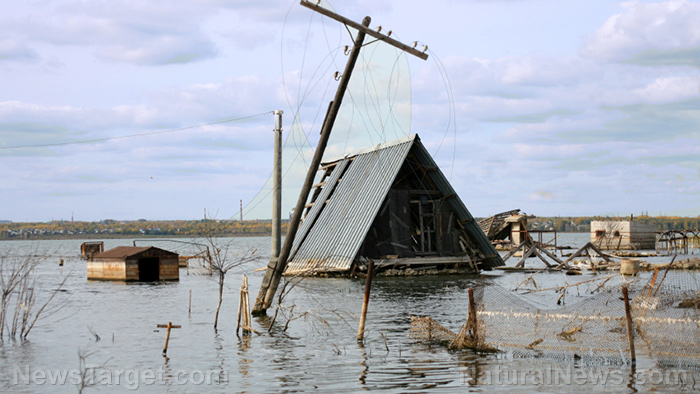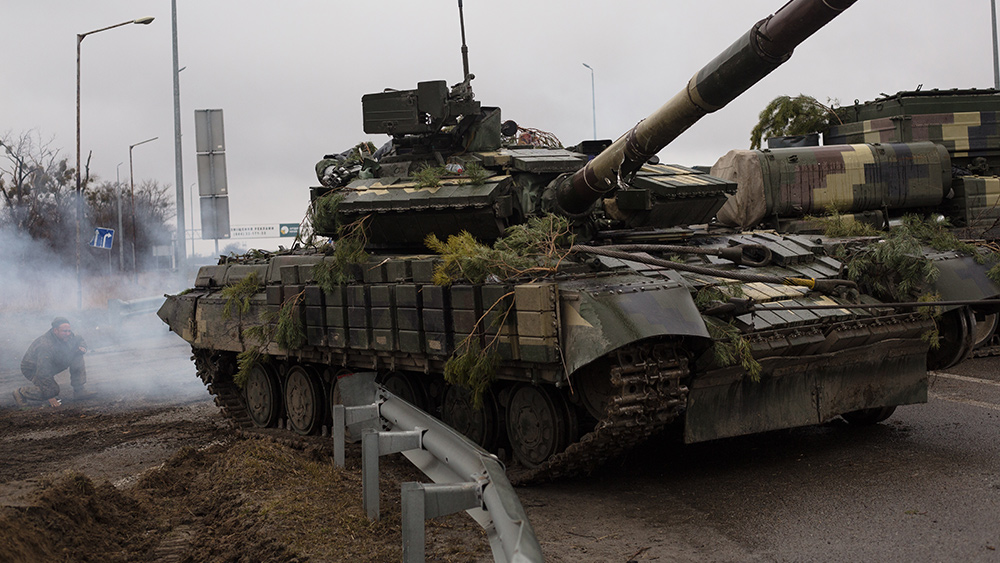
The destruction of the Kakhovka Dam in Ukraine has dislodged unexploded landmines and ordnance.
The Red Cross issued a warning against these lethal explosives following the dam's destruction on June 6. According to the group, floodwaters from the reservoir are transporting them from the battlefield to residential areas – posing a risk to non-combatants, including children. The landmines were reportedly deployed by the Russian military both to defend their positions and slow the movement of Ukrainian troops in Kherson.
Erik Tollefsen, who heads the International Committee of the Red Cross' Weapon Contamination Unit, told Agence France-Presse of this predicament. He said: "Until now, we have roughly guessed where the mines might be and where we shouldn't go. Now we have no idea; they can be anywhere in the floodplain."
While more than 40,000 people have already been evacuated from the dam's surrounding area, locals have attested to the presence of "floating landmines." These landmines filled with seven kilograms of explosives not only pose a danger to Ukrainian soldiers, but also to civilians and aid workers behind humanitarian efforts in the beleaguered country.
"Many anti-infantry mines have been dislodged, becoming floating mines. They pose a great danger," remarked Nataliya Humeniuk, a spokeswoman for the South Command of the Ukrainian Armed Forces.
The HALO Trust, the world's largest humanitarian charity dedicated to clearing landmines, has been attempting to mark areas where landmines have been located. However, dramatically fluctuating water levels are causing the explosives to move further inland – frustrating the group's efforts.
"Our de-mining teams regularly cross the river to access minefields, but three of these minefields are now underwater. We've had to suspend work on others nearby," the HALO trust said in a statement. It ultimately warned that landmines now pose "a fatal risk to civilians who live in the area or use the fertile banks to graze their animals, cultivate crops and [catch] fish."
Moscow, Kyiv pointing fingers over dam destruction
The dam located in the city of Nova Kakhovka in Kherson Oblast was destroyed by an explosion on June 6. State-owned hydropower operator Ukrhydroenergo said the affected section of the dam was "fully destroyed" and could not be restored. Aside from flooding, the incident caused thousands of residents to lose their homes, clean drinking water and electricity.
Both warring parties pointed their fingers at each other over who was responsible for blowing up the dam. (Related: Russia, Ukraine accuse each other of plotting false flag events that will cause mass casualties.)
On one hand, Kyiv accused Russia of being responsible for destroying the dam. According to the Ukrainian government, Moscow may have feared that Ukrainian forces would use the road over the dam to get troops across the Dneiper River into Russian-held territory as part of its counter-offensive.
On the other hand, Moscow blamed Ukraine for the dam's destruction. Kremlin Press Secretary Dmitry Peskov called the incident an act of "sabotage" masterminded by Kyiv that would deprive the Crimean peninsula of water.
Mykola Kalinin, chief engineer at the Ukrainian hydropower and water management engineering firm Ukrhydroproject, put in his two cents on the Kakhovka Dam's destruction. Speaking in the Ukrainian data journalism site Texty, he disclosed that the dam was "built to withstand a super-powerful impact from the outside." Kalinin concluded that explosives that destroyed the dam were planted from the inside.
Visit UkraineWitness.com for more stories about the Kakhovka Dam's destruction, part of the ongoing Russia-Ukraine war.
Watch Tucker Carlson bringing up the possibility of Ukraine blowing up the Kakhovka Dam as a false flag on the debut episode of his new show "Tucker on Twitter."
This video is from the Heaven Reigns channel on Brighteon.com.
More related stories:
Did Ukraine just blow up its own Kakhovka Dam?
CONFIRMED: Nord Stream 1 and 2 pipelines SABOTAGED as third world war looms.
Sources include:
Please contact us for more information.















